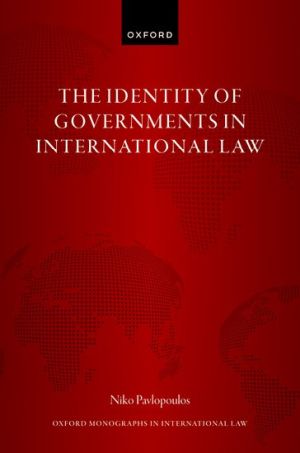
The Identity of Governments in International Law provides a comprehensive account of the international legal regulation of governmental status. It examines the fundamental conceptual aspects of the government of a state in international law, before analysing the law concerning the recognition of governments and the criteria for governmental status under customary international law. It also explores matters concerning the identity of governments in the context of international organizations.
Presenting the positive international legal framework concerning the regulation of governmental status, the book engages extensively with historical and contemporary examples, such as the rival governments of Cambodia (1970-75; 1979-89, 1997-98); the recognition of the Taliban (1996-2001; and again beginning in 2021); and the contested identity of Venezuela's president (beginning in 2019). Given the pre-eminence of states in international law and the importance of governments to the representation of states, the systematic examination of practice grounded in solid conceptual foundations renders this book a useful reference point for scholars and practitioners in all fields of international law and beyond.